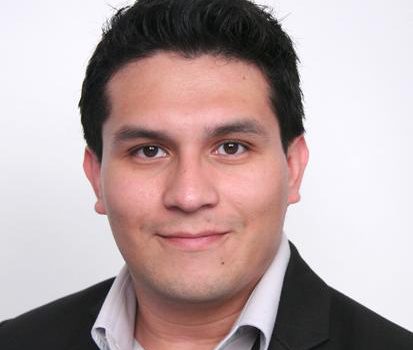
The defense will take place on Tuesday 27th September at 10:00 in the Chappe amphitheatre, Chappe Building, INSA Lyon.
It will be in French with slides in English
Jury
Reviewers
JULIEN-VERGONJANNE Anne, Limoges University
BERDER Olivier, Rennes 1 University
President of the jury
LE RUYET Didier, Conservatoire National des Arts et Métiers
Examiner
UGUEN Bernard, Rennes 1 University
Advisors
GORCE Jean-Marie, INSA de Lyon
GOURSAUD Claire, INSA de Lyon
Abstract
Wireless Body Area Networks (WBAN) refers to the family of “wearable” wireless sensor networks (WSN) used to collect personal data, such as human activity, heart rate, sleep sequences or geographical position.
This thesis aims at proposing cooperative algorithms and cross-layer mechanisms with WBAN to perform large-scale individual motion capture and coordinated group navigation applications.
For this purpose, we exploit the advantages of jointly cooperative and heterogeneous WBAN under full/half-mesh topologies for localization purposes, from on-body links at the body scale, body-to-body links between mobile users of a group and off-body links with respect to the environment and the infrastructure. The wireless transmission relies on an impulse radio Ultra-Wideband (IR-UWB) radio (based on the IEEE 802.15.6 standard), in order to obtain accurate peer-to-peer ranging measurements based on Time of Arrival (ToA) estimates. Thus, we address the problem of positioning and ranging estimation through the design of cross-layer strategies by considering realistic body mobility and channel variations.
Our first contribution consists in the creation of an unprecedented WBAN measurement database obtained with real experimental scenarios for mobility and channel modelling. Then, we introduce a discrete-event (WSNet) and deterministic (PyLayers) co-simulator tool able to exploit our measurement database to help us on the design and validation of cooperative algorithms. Using these tools, we investigate the impact of nodes mobility and channel variations on the ranging estimation. In particular, we study the “three-way ranging” (3-WR) protocol and we observed that the delays of 3-WR packets have an impact on the distances estimated in function of the speed of nodes. Then, we quantify and compare the error with statistical models and we show that the error generated by the channel is bigger than the mobility error.
In a second time, we extend our study for the position estimation. Thus, we analyze different strategies at MAC layer through scheduling and slot allocation algorithms to reduce the impact of mobility. Then, we propose to optimize our positioning algorithm with an extended Kalman filter (EKF), by using our scheduling strategies and the statistical models of mobility and channel errors. Finally, we propose a distributed-cooperative algorithm based on the analysis of long-term and short-term link quality estimators (LQEs) to improve the reliability of positioning. To do so, we evaluate the positioning success rate under three different channel models (empirical, simulated and experimental) along with a conditional algorithm (based on game theory) for virtual anchor choice. We show that our algorithm improve the number of positions estimated for the nodes with the worst localization performance.
